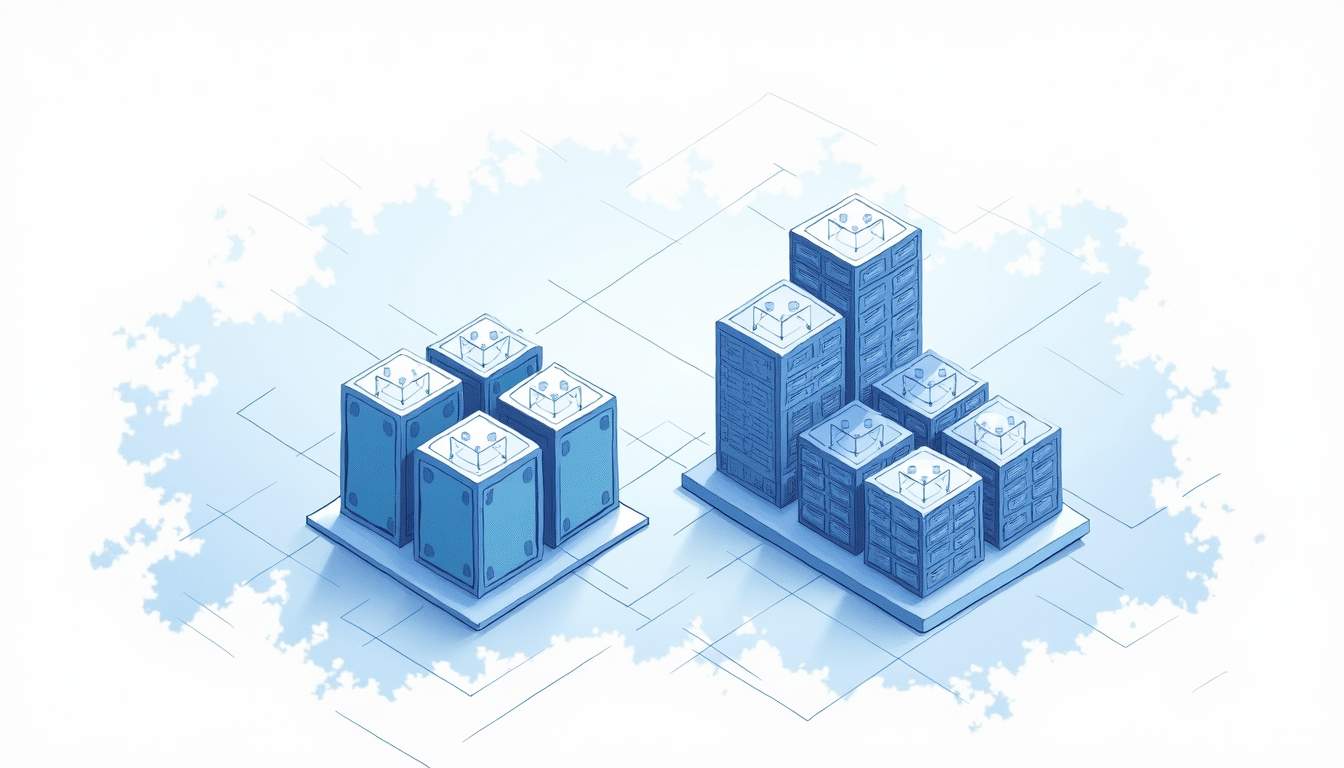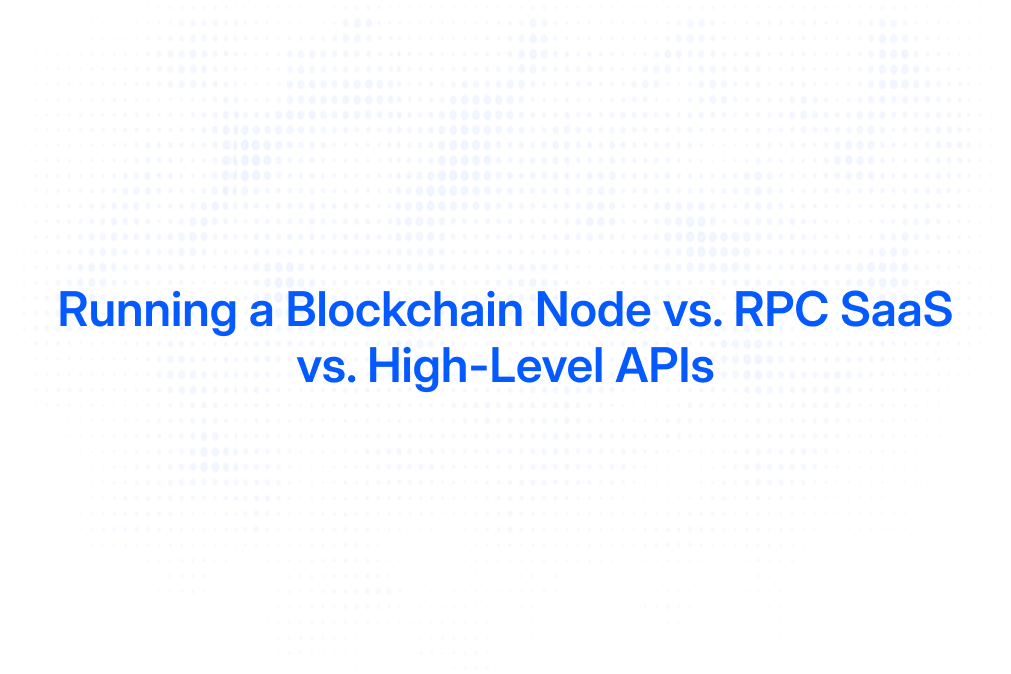How Uniblock Reduces RPC Costs Compared to Infura
In the rapidly evolving Web3 ecosystem, efficient and cost-effective access to blockchain networks is paramount. Remote Procedure Call (RPC) providers serve as the critical infrastructure enabling decentralized applications (dApps) to communicate with blockchains. Among the leading RPC providers, Infura has long been a dominant player. However, emerging solutions like Uniblock are reshaping the landscape by offering innovative approaches to reduce RPC costs without compromising reliability or performance.
This article explores how Uniblock reduces RPC costs compared to Infura, highlighting the technical strategies, economic benefits, and operational advantages that make Uniblock a compelling alternative for Web3 developers and projects.
Understanding RPC Providers and Their Cost Structures
What Are RPC Providers?
RPC providers act as intermediaries that allow applications to interact with blockchain nodes. They handle requests such as querying blockchain data, submitting transactions, and listening for events. High-quality RPC providers ensure low latency, high availability, and scalability, which are essential for seamless dApp performance. This is particularly crucial in environments where speed and reliability can directly impact user experience and operational efficiency.
Infura has been a pioneer in providing scalable RPC services, especially for Ethereum and IPFS networks. However, as demand for blockchain interactions grows, the cost of using single-provider RPC services like Infura can become a significant burden for startups and established projects alike. Many developers find themselves navigating a complex landscape of pricing tiers, which can be daunting when trying to predict future expenses based on fluctuating usage patterns. Understanding these dynamics is essential for budgeting and resource allocation in blockchain projects.
Cost Dynamics Behind RPC Usage
RPC providers typically charge based on the volume of API calls, bandwidth usage, and additional features such as enhanced security or analytics. Infura’s pricing model, while straightforward, can lead to escalating costs as projects scale, especially when relying on a single provider. This single-provider dependence also introduces risks related to downtime and service limitations. For instance, if a provider experiences technical difficulties or maintenance issues, the entire application relying on that service could face interruptions, potentially leading to lost revenue and user dissatisfaction.
In contrast, Uniblock employs a multi-provider RPC routing system that dynamically distributes requests across multiple backends. This approach not only enhances reliability but also optimizes cost by leveraging competitive pricing and reducing redundant calls. By spreading requests among various providers, developers can achieve better performance metrics and mitigate the risks associated with provider outages. Furthermore, this strategy allows teams to take advantage of unique features offered by different RPC providers, such as specialized support for various blockchain networks or advanced analytics tools, thereby enriching their overall development experience.
How Uniblock’s Multi-Provider RPC Routing Cuts Costs
Multi-Provider Strategy Explained
Uniblock’s core innovation lies in its multi-provider RPC routing technology. Instead of relying on a single RPC endpoint, Uniblock aggregates multiple RPC providers—including Infura, Alchemy, QuickNode, and others—into a unified interface. This aggregation enables intelligent routing of requests based on factors such as provider cost, latency, and availability.
By auto-routing RPC calls to the most cost-effective and performant providers at any given moment, Uniblock reduces the overall cost per API call. This dynamic routing also mitigates the risk of overloading a single provider, which can lead to throttling or increased charges. The system continuously monitors the performance metrics of each provider, ensuring that developers can focus on building their applications rather than managing the complexities of RPC endpoints.
Additionally, Uniblock's architecture incorporates machine learning algorithms that analyze historical data to predict provider performance trends. This predictive capability allows the system to make informed decisions about routing, further enhancing efficiency and cost-effectiveness. As a result, developers can enjoy seamless connectivity and reliability, even during peak usage times, which is crucial for applications that require real-time data processing.
Cost Optimization Through Failover and Load Balancing
Uniblock integrates advanced failover and load balancing mechanisms that further contribute to cost savings. When one provider experiences downtime or increased latency, traffic is automatically rerouted to alternative providers without service interruption. This redundancy eliminates costly downtime and reduces the need for expensive over-provisioning.
Moreover, load balancing distributes requests evenly, preventing spikes that might trigger higher pricing tiers or throttling policies. These features collectively enable projects to maintain high uptime and performance while controlling expenses. The system also provides detailed analytics on usage patterns, allowing teams to identify trends and optimize their API consumption further. By understanding which providers offer the best performance for specific types of requests, developers can tailor their strategies to maximize efficiency.
Furthermore, Uniblock's architecture is designed to adapt to the evolving landscape of RPC providers. As new players enter the market or existing providers adjust their pricing models, Uniblock can quickly integrate these changes, ensuring that users always have access to the best possible options. This adaptability not only enhances cost savings but also empowers developers to experiment with different providers to find the optimal mix for their specific needs.
Real-World Impact: Up to 40% Cost Reduction
Several Web3 startups and projects using Uniblock have reported RPC cost reductions of up to 40% compared to relying solely on Infura. These savings stem from optimized API call routing, reduced redundant queries, and leveraging providers with more favorable pricing models for specific request types or regions.
For example, a decentralized finance (DeFi) platform integrating Uniblock’s multi-provider routing was able to scale to millions of API calls per day without proportionally increasing their RPC budget—a feat challenging to achieve with a single-provider setup like Infura. This scalability not only allowed the platform to handle increased user demand but also provided the flexibility to innovate and expand its offerings without the constant worry of escalating costs.
In another instance, a gaming application utilizing Uniblock reported significant improvements in user experience due to reduced latency and faster response times. By dynamically routing calls to the best-performing providers, the application maintained smooth gameplay even during high traffic periods. This not only enhanced player satisfaction but also contributed to a lower churn rate, ultimately leading to higher revenue and growth potential for the developers involved.
Comparing Uniblock and Infura: Beyond Costs
Reliability and Redundancy
While Infura offers robust infrastructure, its single-provider model inherently carries risks of outages or throttling during peak demand. Uniblock’s multi-provider architecture provides built-in redundancy, ensuring that if one provider faces issues, others seamlessly take over. This design significantly reduces RPC downtime, which can be costly both in terms of user experience and lost revenue.
Latency and Multi-Region Support
Uniblock supports multi-region RPC routing, directing requests to the geographically closest or fastest provider endpoint. This reduces latency, improving dApp responsiveness and user satisfaction. Infura, while having a global presence, does not offer the same level of dynamic multi-region routing out-of-the-box.
Flexibility and Scalability
Uniblock’s platform is designed for scalability, allowing projects to easily integrate new RPC providers and customize routing rules. This flexibility helps projects adapt to changing market conditions and provider pricing, further optimizing costs over time. Infura’s more static pricing and provider ecosystem can limit such adaptability.
Addressing Common Concerns About Multi-Provider RPC Solutions
Is Multi-Provider Routing Complex to Implement?
One might assume that integrating multiple RPC providers would complicate development. However, Uniblock offers a unified API endpoint that abstracts away the complexity. Developers interact with a single interface while Uniblock manages the routing logic behind the scenes.
This simplicity accelerates development and reduces operational overhead, making multi-provider routing accessible even for teams without extensive infrastructure expertise.
How Does Uniblock Ensure Data Consistency?
Data consistency is critical in blockchain interactions. Uniblock employs sophisticated synchronization and validation techniques to ensure that responses from different providers are consistent and reliable. In cases of discrepancies, it can prioritize the most trusted or fastest source, maintaining data integrity without sacrificing performance.
What About Security?
Uniblock maintains stringent security standards, including encrypted communication channels and provider vetting processes. By distributing requests across multiple providers, it also reduces the attack surface compared to relying on a single endpoint, enhancing overall security posture.
Conclusion: Why Uniblock is a Smart Choice for Cost-Conscious Web3 Projects
For blockchain projects aiming to optimize their RPC infrastructure costs, Uniblock presents a compelling alternative to Infura. Its multi-provider RPC routing technology delivers significant cost savings—up to 40% in some cases—while enhancing reliability, reducing latency, and providing flexibility for scaling.
By mitigating the risks associated with single-provider dependence and intelligently balancing load across multiple providers, Uniblock empowers developers to build resilient, performant, and economically sustainable Web3 applications.
As the Web3 ecosystem continues to grow, leveraging innovative infrastructure solutions like Uniblock will be essential for projects seeking to maintain competitive advantages without compromising on quality or user experience.
Ready to revolutionize your Web3 project's infrastructure and join the ranks of over 2,000 developers who are already enjoying the benefits of Uniblock? With support for 100+ chains and a commitment to eliminating vendor lock-in, Uniblock is the go-to platform for building resilient, high-performance dApps, tooling, or analytics without the manual hassle. Start building with Uniblock today and scale your project with confidence, knowing you're backed by the most cost-effective, reliable, and user-friendly Web3 infrastructure orchestration platform available.
.svg)


.png)



